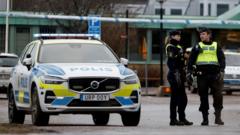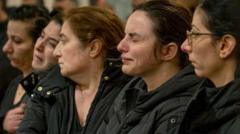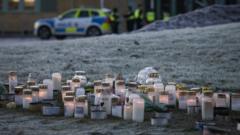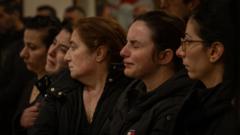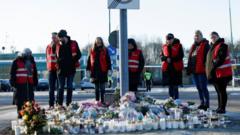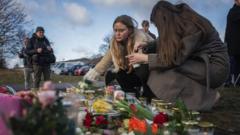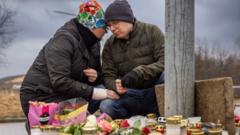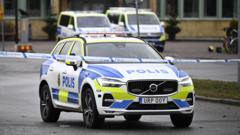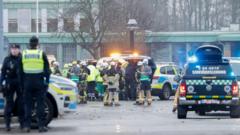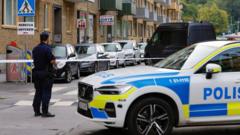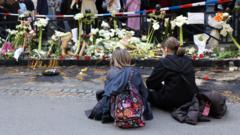**In the wake of Sweden's deadliest school shooting, victims have been identified, while calls for stronger gun control measures gain momentum amidst deep community concerns.**
**Tragedy Strikes in Orebro: Details Emerge on Swedish School Shooting Victims**
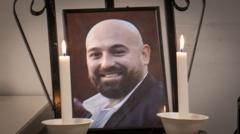
**Tragedy Strikes in Orebro: Details Emerge on Swedish School Shooting Victims**
**The recent mass shooting in Orebro leaves ten individuals dead, prompting a national discourse on gun laws and community safety.**
The horrific mass shooting at an adult education center in Orebro has shook Sweden to its core. Authorities confirmed that the ten victims, comprising seven women and three men aged between 28 and 68, were all residents of the city, which is located approximately 125 miles from Stockholm. The tragedy unfolded on Tuesday, causing widespread alarm and grief across the nation. While the identities of the victims have not yet been officially released, families and communities have begun to share stories about their lives.
Among the victims, Salim Iskef, a 29-year-old Syrian refugee who fled conflict in his homeland in 2015, was notably remembered during a memorial service attended by his family and community members. Known for his kindness, Iskef was a student at the Risbergska center, a school with a diverse population seeking to learn Swedish and gain essential skills. Another victim, Bassam Al Sheleh, a 48-year-old father, was also studying at the center to improve his English proficiency.
The shooting raised immediate concerns regarding public safety, particularly among immigrant communities in Orebro. Prime Minister Ulf Kristersson acknowledged the fears and urged the nation to unite in support of those affected. "My thoughts are with the relatives who have now received the call that is the worst one can get," he stated.
The alleged shooter, identified by various media as Rickard Andersson, a 35-year-old local man, reportedly took his own life inside the school after the attack. Police disclosed that he legally owned four rifles, three of which were found at the scene, alongside ten empty magazines.
In response to the tragedy, Sweden's coalition government announced plans to bolster gun control laws, aiming to introduce stricter vetting processes for gun purchases and to restrict access to certain types of rifles. The government also highlighted the need to limit ownership of high-danger weapons, such as the semi-automatic AR-15 rifle.
The Sweden Democrats, a party that supports the ruling coalition, expressed agreement with the push for increased gun regulations. "The horrific act of violence in Orebro raises several key questions about gun legislation," they stated, voicing their concern for public safety.
Currently, Swedish gun laws allow individuals over 18 without criminal records to apply for permits for shotguns, handguns, and semi-automatic rifles. However, the mass shooting has reignited debates about the effectiveness of these laws and the need for reforms.
This tragic event marks a shift in Sweden's narrative around gun violence. Despite having a relatively high level of gun ownership compared to other European countries, non-gang-related gun crime is rare. The Orebro shooting is notably Sweden's first school shooting and its deadliest mass shooting on record.
As the investigation continues and communities mourn the loss of their loved ones, discussions about safety, inclusivity, and legislative changes are at the forefront, with many hoping for a robust national conversation on preventing similar tragedies in the future.

